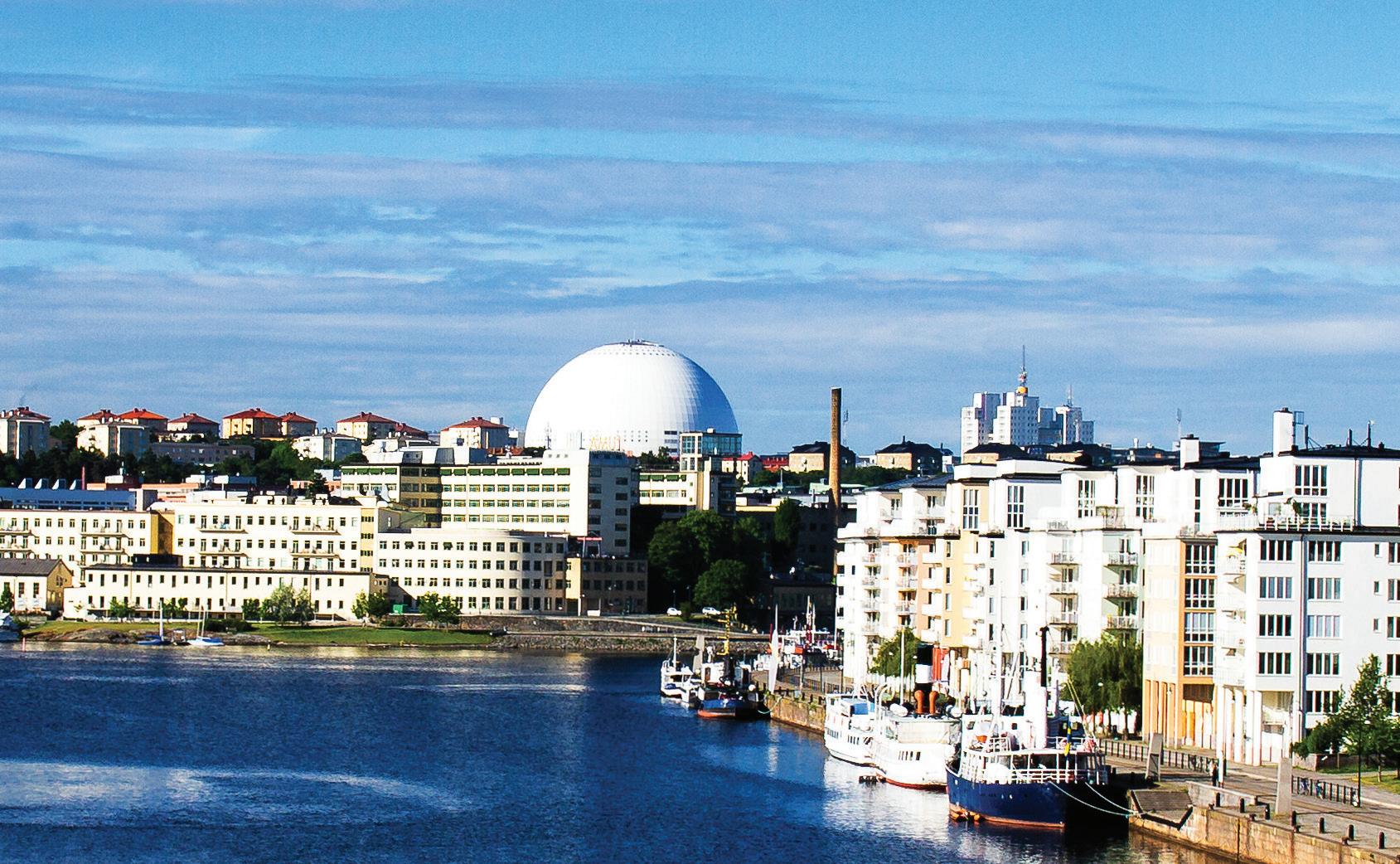October
Baltic Sea collaboration on PFAS in wastewater With the support of the Swedish Institute, IVL is launching a project to increase knowledge about PFAS in wastewater and how we can reduce emissions into the Baltic Sea. Universities and research institutes from a number countries in the Baltic Sea region are participating. PFAS pollutants in the aquatic environment can be reduced by means of better sewage and sludge management, although knowledge levels in the countries around the Baltic Sea vary.
Transport planning not contributing to climate goals Sweden’s ambitious environmental and climate policies are not achieving sufficient impact in infrastructure planning. This can be seen from a report from the research project Stafetten, conducted by IVL, Trivector and Lund University. Unclear targets, expansionary national traffic plans and old decisions regarding road development are some of the reasons for the transition being delayed.
November
Unique textile sorting plant goes into operation The world’s first large-scale plant for automated textile sorting was inaugurated in November in Malmö. The machine, which is installed in Sysav’s plant, has a sorting capacity of 24,000 tonnes of textile per year and could revolutionise Swedish textile recycling. Several major Swedish textile, fashion and furniture companies, local authorities, charities, research institutes and public authorities are supporting the innovation platform – a total of 19 actors under the leadership of IVL. Read more on page 30.
Report on sustainable electromobility What is required in order for electric road transport to be environmentally and socially sustainable? A report produced by IVL on behalf of the World Wide Fund for Nature WWF Sweden shows which sustainability aspects are important and proposes various measures. The industry needs to focus more on sustainable materials in vehicles and batteries, and these materials have to be recycled to a very great extent. In order to accelerate the transition to electric power, municipalities can introduce zero emission zones on a small scale as more electric vehicles enter the market.
Safer assessment of endocrine disruptors in construction products
Major investment in sustainable seafood
IVL’s subsidiary Basta, along with actors in the construction sector, has developed a method for identifying endocrine disruptors in construction products. The method is based on three steps, all of which are described in a guide. Basta’s database is one of the largest in the sector, containing more than 160,000 articles. Including endocrine disruptors in the assessment of construction products is an important step for achieving sustainable construction.
Food from the sea and lakes has a great future. At the end of the year, a new initiative entitled Blue Food – Centre for the Future of Seafood was launched, in which IVL is participating. This is the largest investment in Swedish seafood to date, with funding of MSEK 48 from the Swedish Research Council Formas. The vision is for the industry to grow to ten times its current size, and for the proportion of Swedish-produced seafood to be doubled.
10
IVL SWEDISH ENVIRONMENTAL RESEARCH INSTITUTE



























